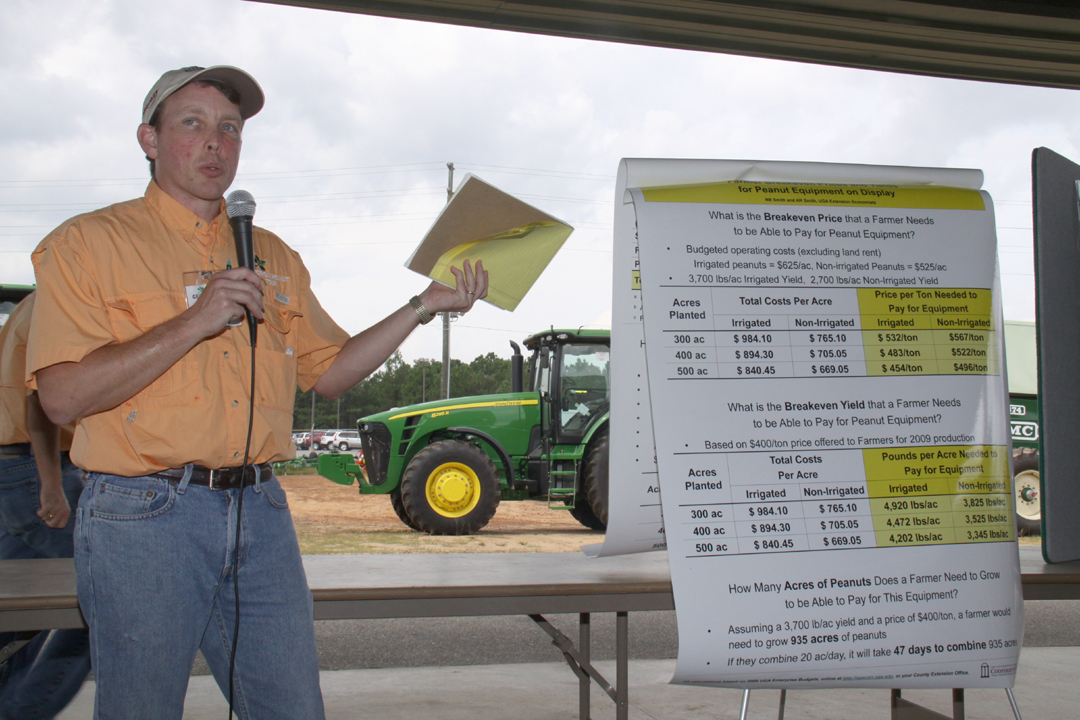
Nathan Smith, University of Georgia
The Georgia Peanut Tour visited Lasseter Implement Company in Hazlehurst, Ga. to learn more about the equipment farmers use to produce quality peanuts and the investments made by each farmer when purchasing the equipment. University of Georgia economist Nathan Smith presented information on a farmer’s investment and operating costs for peanut equipment. According to Smith, if a farmer purchases a tractor (200 hp, 4 Wheel Drive), six-row digger, four-row combine and peanut dump cart their total investment is approximately $325,000. This is a large investment for a farmer since the only piece of equipment, the tractor, can be used with other crops. If a farmer is growing 300 acres then they would need $532 per ton on irrigated peanuts and $567 per ton on non-irrigated peantus to breakeven and be able to pay for the equipment. The same farmer growing 300 acres would need to yield 4,920 pounds per acre on irrigated peanuts and 3,825 on non-irrigated peanuts to breakeven and be able to pay for the equipment.
So, how many acres of peanuts does a farmer need to grow to be able to pay for this equipment?
• Assuming a 3,700 lb/ac yield and a price of $400/ton, a farmer would need to grow 935 acres of peanuts
• If they combine 20 ac/day, it will take 47 days to combine 935 acres
John Hayes with Lasseter Implement Company provides overview of the company on the Georgia Peanut Tour.
